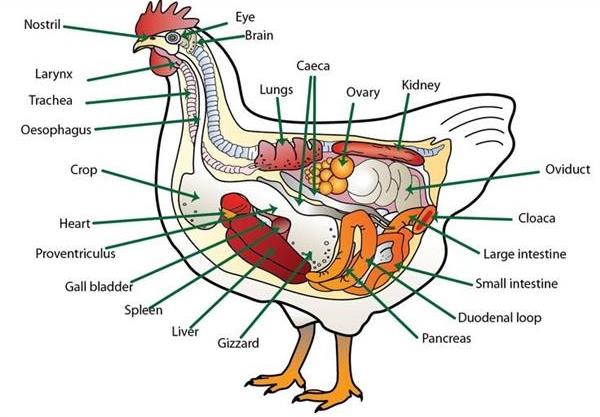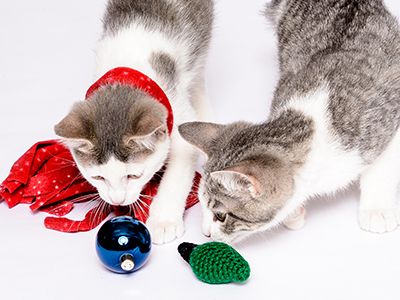FREQUENTLY ASKED QUESTIONS
- DO I NEED A ROOSTER IN ORDER FOR A HEN TO LAY EGGS?
- No. A hen will lay eggs even if there is no rooster. The eggs just won’t be fertile.
- WHAT IS BROODY?
- Broody means a hen wants to sit on eggs (even if they’re not fertile), or pine shavings, or a golf ball… they will sit on anything. They want babies.
- WHAT IF MY EGGS ARE FERTILE? I DON’T WANT BABY CHICKS!
- Then don’t put them in an incubator. You can eat them as usual, they will not taste any different and the texture isn’t different. A chicken fetus will not start to develop until after a few days once the egg is at a consistent temperature of ~100*F
- MY CHICKEN IS _______. HELP!
- Have a plan for some kind of vet care. There are many things that you can treat at home, but sometimes you cannot. Go to a vet if necessary. Have a plan.
- WHAT IS A PULLET?
- A pullet is a young female chicken. After one year, the pullet becomes a hen.
- WHAT IS A COCKEREL?
- A cockerel is a young male chicken. After one year, the cockerel becomes a rooster.
CHICKEN ANATOMY

COMMON CHICKEN AILMENTS
- Bumblefoot
- Ulcerative pododermatitis is the real name, but this can impact chickens. It’s a bacterial infection on their feet. The pad of their foot will be swollen and red, with some sort of scab or core. Normally caused from some sort of trauma to the foot (stepping on a stick, for example), and then infection sets in.
- Mites/Lice
- Worms
- Coccidiosis
- The only way to KNOW for sure that you are dealing with cocci is to have a fecal float test done by a veterinarian.
- Crop Impaction
- Salmonella
- This is *not* common. Keep your chicken area clean, but always make sure you wash your hands after handling a chicken or their eggs.
- Egg Bound
FIRST AID KIT
It is probably a good idea to have a chicken first aid kit. Here are some things you should include:
- Vet wrap
- Blu Kote
- Neosporin (with no pain reliever in it)
- Rubbing Alcohol
- Corid (This is used to treat coccidiosis)
- Dog/Cat nail trimmers
- Styptic Powder
- Tweezers
- Rubber Gloves
- Wazine (Used to treat worms)
- Epsom Salt
- Vetericyn
HOUSING
- Chickens roost at night (much like a wild bird does). It is healthy for them to do so, and it’s a natural behavior. Even chicks that are a few weeks old will roost on something given the chance. Be careful giving chicks that are less than 6 weeks old a perch, as it can affect their keel bone from developing. In nature, a mother hen will not perch when her chicks are young, they will all sleep under her.
- Your coop should be sturdy, free of drafts, and secure from predators. Every.single.thing wants to eat your chickens. You have to protect them. If you don’t, at some point, something will get them.
- There are many different types of coops that you can make. As long as the birds have an area to roost, and there is access somehow to food and fresh water, they won’t care what it looks like.
- You can purchase many coops from the brick and mortar stores, but they’re very flimsy material and don’t last very long and are not very predator proof.
- Spend the money/time/resources and invest in a good, solid coop. There are many people that will build you a coop. You’ll spend money, but it will last years.
- Plan ahead – don’t get chickens before you have a coop!
- There are many different types of coops that you can make. As long as the birds have an area to roost, and there is access somehow to food and fresh water, they won’t care what it looks like.
- The standard for space for chickens is 4sq ft of coop space and 10sq ft of run/pen space. The more space the better (that means you can get more chickens!).
- If you cram chickens into a small area, they will peck each other, and sometimes even kill each other.
- BEDDING
- You can use many different things as bedding. It really comes down to a personal preference.
- Pine shavings
- Hay / Straw
- Sand
- The gritty sand (think a beach at the river), not play sand
- Dirt
- Leaves, grass clippings, general yard waste is also good. The chickens will turn it into compost in no time
- Many places warn against using cedar chips with chickens, as it can cause respiratory distress in chickens because of the cedar oil
- You can use many different things as bedding. It really comes down to a personal preference.



ENRICHMENT
- You have to give your chickens the ability to do things that chickens do.
- Dig/scratch
- Peck
- Dust bathe
- Wood ash & dirt, mixed together works well, but they’ll dust bathe in anything they can! Dirt can work, too.
- Roost / climb
- Flap their wings
- Lay Eggs
- Have nesting boxes available for them. There is a suggested number of nesting boxes per hen (5 hens/box). They’ll all cram into the same one, but it’s important to have some available at all times. You can even put curtains on your nesting box for added privacy if you have issues with the birds laying eggs and then eating them, or laying them outside of the nesting boxes in more of a private setting.
CHICKS
- Must be kept warm (~100F) for several weeks.
- You can decrease the temperature by 5F every week until they’re fully feathered.
- Heat lamps are dangerous. Make sure you take necessary precautions so you do not burn down your barn or house. There are alternatives to heat lamps that are much safer. Check out the ECO Glow by Brinsea or the Premier1 Chick brooder. Both are radiant heat.
- Don’t feed “layer” feed to chicks. They need different nutrients and vitamins than your older birds do. You can start on layer feed around ~16 weeks old.
- Medicated or non medicated. It’s a personal preference. Either is fine. The medicated feed has Amproillium in it, which will help ward off coccidiosis, which can kill young birds.
- You can put them outside once they are fully feathered (~8weeks). This is when you should start the introduction to your older birds if you have any.
- Introduce young chicks to older birds slowly. This will help alleviate the older birds picking on the younger ones.
INCUBATING EGGS
- There are many different incubators on the market. Do your research, know what you can spend, buy the best one that you can. The “set it and forget” it type models are my preference. There are Brinsea, Rcom, Hovabators, GQF, etc. Each person has their preference. You get what you pay for!
- It takes 21 days for a chick to develop & hatch. Some may be early. Some may be late. It’s all dependent on your incubators temperature.
- You can let a broody hen hatch your eggs. This is the easiest way, because you don’t have to worry about them during or after. The hen does all the work and most are happy to do so.
ORDINANCES
Des Moines Proper
- ENCLOSURES
- Sec. 18-137. – Enclosures. Any enclosure, pen, coop, or hutch in which pets are maintained shall be cleaned at a minimum of every other day or more often if deemed advisable or necessary by a health officer. They shall be located at a minimum of 25 feet from a neighboring dwelling, as the term “dwelling” is defined in section 134-3 of this Code. No animal may be enclosed or fenced in the front yard of a dwelling. Section 134-3: Dwelling means any building or portion thereof which is designed or used exclusively for residential purposes but not including a tent, cabin, trailer, camper, motor home or mobile home.
- Small caged animals and fowl such as falcons, pigeons, pheasants, quail, chickens, ducks, geese, rabbits, ferrets and other small animals and fowl which are of such type and nature that state and national associations exist establishing norms for breeding, confining and rearing shall be allowed, provided that:
- (1) Cages, hutches, coops, cotes, lofts or other confinement shall be at least 25 feet away from any neighboring residence; such enclosures shall be of sufficient size to house the number of animals or fowl permitted by state or national standards.
- (2) The area is maintained free of odors, insects and rodents, and disturbing noises such as crowing, cackling and gobbling, causing no safety or health hazards to the general public or interfering with the enjoyment of life and property by any neighboring resident.
- (3) Animals and fowl included in this subsection shall be fed in the confines of their enclosures; all grains and food shall be stored in rodent-proof containers.
- (4) On any parcel of land less than an acre, such animals shall be limited to two species and 30 in total number, unless by state and national standards more are permitted.
- (5) On any parcel of land of one acre or more, such animals shall be limited to six species and 50 in total number for the first acre and 50 for each additional acre, unless by state and national standards more are permitted.
- (6) No animal or fowl under this subsection may be maintained, enclosed or fenced in the front yard of a dwelling or within a dwelling.
- (7) The young produced by any animals or fowl of this nature may be maintained with the parent animals for a period of approximately eight weeks but in no case more than ten weeks, unless by state and national standards a longer period is required.
Huxley
- 55.18 DOMESTIC CHICKENS.
- 55.01(7) allows domestic chickens within the City limits. Residents will be allowed to raise, harbor or keep hens on single-family dwelling properties with a valid permit for one year. The annual permit fee will be $25.00. Domestic chicken permit applications are available at the Police Department or City Hall at 515 N. Main Avenue, Huxley, Iowa. An applicant shall complete items on the checklist prior to the Council approving the permit. Each permit must be certified annually in the month prior to the expiration date. This section restricts the number of egg laying hens to 4 per tract of land regardless of how many dwelling units are on the tract. No roosters are allowed.
Indianola
- 55.05 LIVESTOCK.
- It is unlawful for a person to keep livestock within the City except in compliance with the City’s zoning regulations. In order to be zoned properly to have poultry, you have to have a minimum of 15 acres, or, be able to keep your poultry 300ft from the nearest resident plot.
West Des Moines
- Chickens are allowed in residential estate zones, which typically include lots larger than one acre. Residents also must apply for a $600 conditional use permit.
Johnston
- Residents are able to have two chickens on properties larger than a half-acre
- 3. Non-Domestic Animals Restricted. No non-domestic animals are allowed on a lot of less than 20,000 square feet. The number of non-domestic adult animals is limited to two (2) in total number on any parcel greater than 20,000 square feet.
Windsor Heights
- Residents are able to have two chickens on any residential property.
Ankeny, Altoona, Urbandale and Waukee do not allow chickens in residential neighborhoods.




